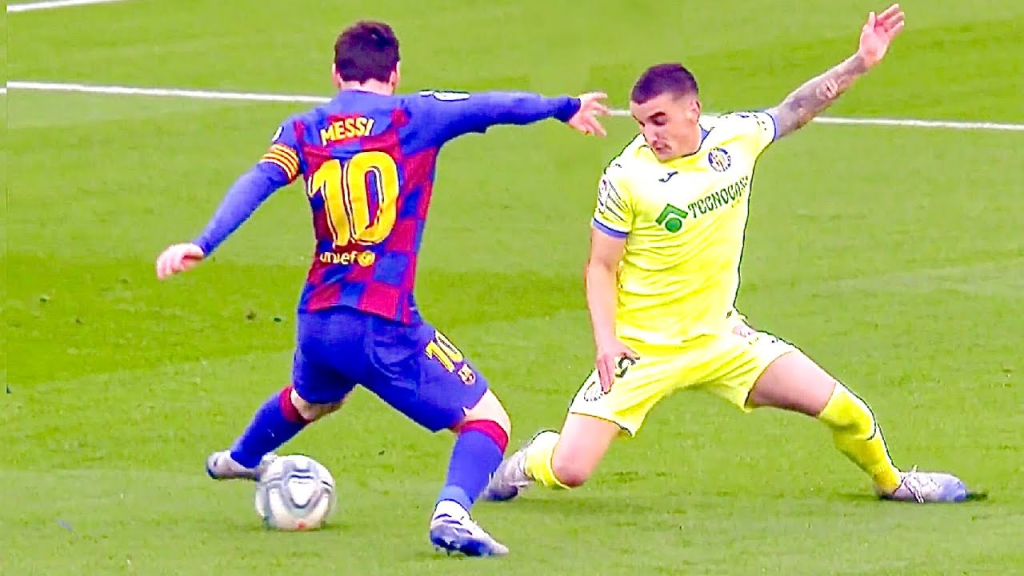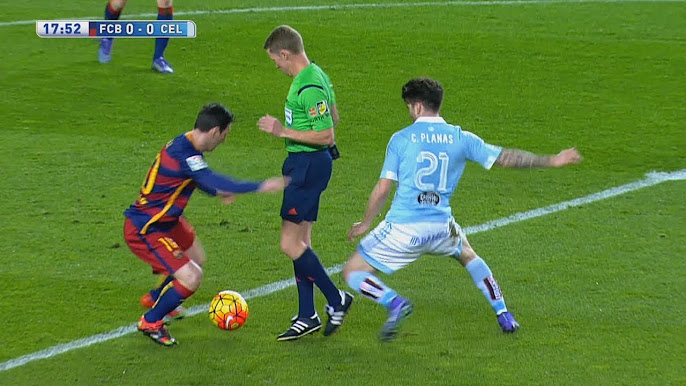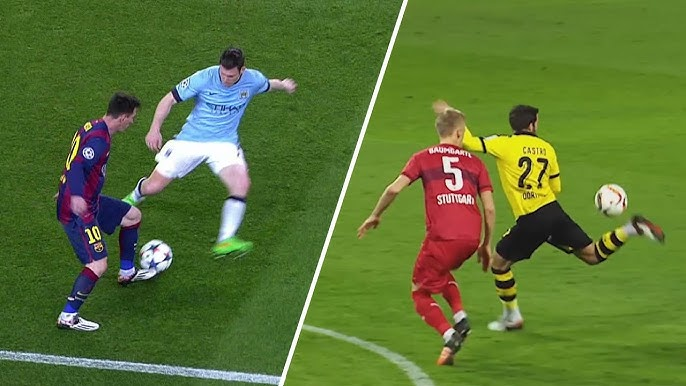Top Football Skills That Every Player Should Master

Football is a game of precision, power, and finesse, requiring players to develop a wide array of skills to excel on the pitch. From beginners to professionals, mastering key techniques is crucial for effective performance. Whether playing in a recreational league or competing professionally, the journey of skill-building never ends. Watching professional players in action, such as live streaming on Xoilac TV, is a great way to learn by observing how experts execute these essential techniques.
Here are the top football skills every player should focus on to sharpen their game and elevate their overall performance.
1. Ball Control
Ball control is fundamental to every aspect of football, as it directly impacts a player’s ability to dribble, pass, and shoot effectively. Good ball control means being able to receive, shield, and maneuver the ball with ease, even under pressure from opponents.
- First Touch: The first touch is crucial as it dictates how a player controls the ball when it comes to them. A soft and calculated first touch helps players to maintain possession and set up their next move, whether that’s a pass, dribble, or shot.
- Keeping the Ball Close: Players should practice keeping the ball close to their body, allowing them to maintain control and navigate through tight spaces or defenders with ease.
Tips for Mastering Ball Control
To improve ball control, players should practice with both feet and focus on soft touches. Drills such as juggling and dribbling in confined spaces are ideal for developing a finer touch and building confidence on the ball.
2. Dribbling
Dribbling is the art of moving the ball up the field while maintaining close control, enabling players to evade defenders. For attackers and midfielders, dribbling is a vital skill that can create scoring opportunities by breaking through defensive lines.
- Speed and Direction: Dribbling is most effective when players can change speed and direction quickly. Varying the pace can throw defenders off balance, making it easier to get past them.
- Skill Moves: Incorporating skill moves like step-overs, the Cruyff turn, or the elastico can help players create space and confuse defenders.
Tips for Dribbling Improvement
Start with cone drills to practice dribbling in a controlled environment. Focus on dribbling with the head up, allowing you to survey the field while keeping control.
3. Passing Accuracy
Passing is one of the primary ways to advance the ball and create team opportunities. A player with precise passing skills can make the game flow smoother and faster, connecting plays across the field.
- Short and Long Passes: Players should be comfortable making both short, accurate passes to maintain possession and longer, strategic passes to switch the play or find open teammates.
- One-Touch Passing: Mastering one-touch passing can make a team’s playstyle quicker and less predictable for opponents.
Tips for Practicing Passing
Use drills that emphasize accuracy over power. Targeted passing exercises, like passing against a wall or with a partner, help players improve their passing precision. Practicing with both feet is also essential to avoid any weak spots in-game situations.

4. Shooting and Finishing
Scoring goals is the ultimate aim, making shooting and finishing skills critical for strikers and attacking players. This includes both power shots and finesse finishes, each with different techniques depending on the situation.
- Placement vs. Power: In certain situations, accuracy and placement are more effective than pure power. Players should practice hitting corners or finding gaps to make it harder for goalkeepers to save.
- Timing: Shooting often involves reacting quickly and timing the shot perfectly, especially in crowded situations where there may only be a brief window of opportunity.
Tips for Enhancing Shooting Skills
Set up shooting drills with targets in the goal to practice aiming for specific areas. Additionally, practice with both feet to ensure versatility in various game situations.
5. Defensive Skills
Defending is not just for defenders—every player should understand the basics of tackling, intercepting, and positioning to contribute to their team’s defense. Good defensive skills prevent the opposing team from creating goal-scoring opportunities and help maintain possession.
- Tackling: Tackling should be timed well to avoid fouls and recover the ball effectively. Players should learn both standing tackles and sliding tackles, knowing when to use each.
- Positioning and Anticipation: Good defenders anticipate opponents’ movements, placing themselves in strategic positions to intercept or challenge for the ball.
Tips for Defensive Drills
Working on shadowing opponents, marking players, and tracking back to cover open spaces can improve defensive positioning. Regular practice with teammates can also help players understand timing and coordination in defensive scenarios.
6. Heading the Ball
Headers are important for both defensive clearances and scoring opportunities in the attacking zone. Mastering the technique and timing of headers can make a big difference in set pieces and open play.
- Aiming and Timing: Players should time their jumps accurately to connect with the ball at the peak of their jump, giving them the best chance to direct it powerfully.
- Defensive vs. Attacking Headers: In defensive situations, headers are typically used to clear the ball away from the danger zone, while in attacking situations, players aim for accuracy and power to score.
Tips for Improving Heading Skills
Practice headers with a partner or against a wall to develop timing and accuracy. Focus on using the forehead to connect with the ball, and work on timing jumps to reach maximum height.
7. Positional Awareness
Football is a game of space and positioning. A player with strong positional awareness understands where they are on the field, where teammates and opponents are, and can make decisions accordingly.
- Off-the-Ball Movement: Players should be constantly scanning the field to anticipate where they need to be, whether to support teammates, create passing options, or close down an opponent.
- Reading the Game: This involves interpreting the flow of play and anticipating the actions of teammates and opponents, a skill that comes with experience and practice.
Tips for Developing Positional Awareness
Play small-sided games to improve spatial awareness. Watching professional matches can also help players learn how experts move off the ball, positioning themselves to support plays.
8. Agility and Balance
Agility and balance are physical attributes that enhance almost every football skill. Quick directional changes, body control, and stability on the ball all benefit from agility and balance.
- Turning and Pivoting: Players often need to turn sharply, especially when dribbling or changing direction. A strong core and lower-body strength aid in maintaining balance.
- Body Control: Good balance allows players to keep their footing in challenging situations, like shoulder-to-shoulder contests or attempting tricky maneuvers on the ball.
Tips for Building Agility and Balance
Agility ladder drills, cone drills, and plyometric exercises are effective for improving quickness and body control. Practicing balance through exercises like one-leg stands and dynamic movements also contributes to better stability on the field.
9. Communication
Football is a team sport, and effective communication is essential for maintaining coordination and fluidity among players. Communication helps players organize defensively, execute offensive plays, and keep team morale high.
- Verbal and Nonverbal Cues: Players need to use verbal cues to call for passes, warn teammates, and organize plays. Nonverbal cues like hand signals or eye contact can also be helpful in noisy stadiums.
- Leadership on the Field: Some players naturally take on leadership roles, guiding their teammates and ensuring everyone is focused on their roles.
Tips for Practicing Communication
Communication drills that emphasize teamwork, such as passing and moving exercises, can enhance both verbal and nonverbal communication skills. Encourage team huddles to discuss strategies and roles for better cohesiveness.

Conclusion
Mastering these football skills is essential for any player who wants to excel on the field, whether they are a seasoned professional or a beginner. Each skill, from dribbling to positional awareness, contributes to overall performance and enables players to handle various situations during a match. Watching live matches on Xôi lạc TV allows players to learn directly from professionals and analyze how these skills are applied at the highest level of competition. With dedication and practice, any player can enhance their abilities and make a lasting impact on the game.